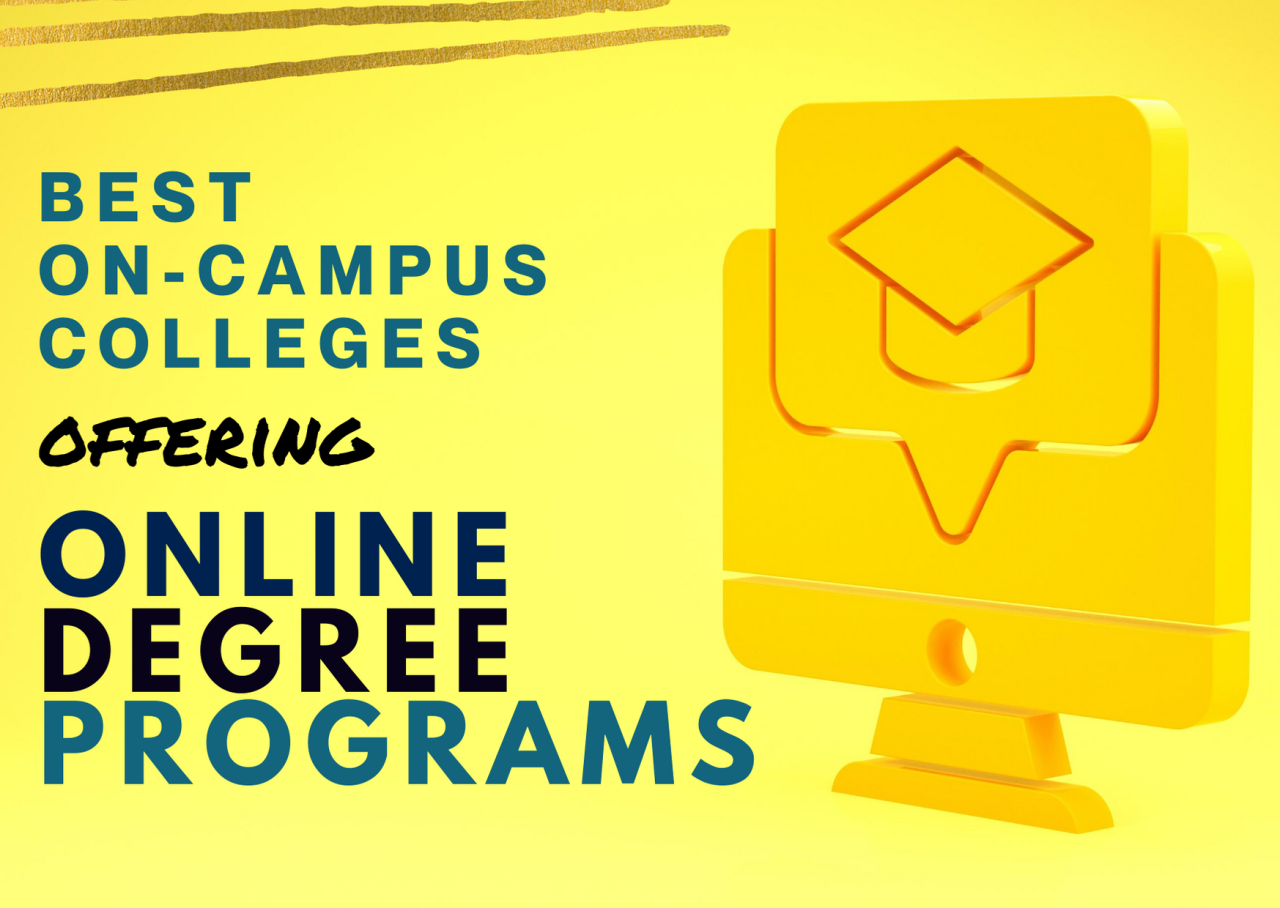Online degree programs are transforming the educational landscape, offering flexibility and accessibility like never before. As students increasingly seek alternatives to traditional learning, these digital avenues allow individuals from diverse backgrounds to pursue higher education without the constraints of geographical limitations. Recent statistics reveal a remarkable surge in online enrolment, suggesting that this innovative approach is not merely a trend but a fundamental shift in how we perceive and engage with education.
The variety of online degree programs available is staggering, catering to an array of interests and career aspirations. From business administration to computer science, the options are plentiful, and many institutions are responding to the growing demand by expanding their online offerings. This movement is indicative of a broader recognition of the value of flexible learning, enabling students to balance their studies with other commitments while equipping them with the skills necessary for today’s job market.
Overview of Online Degree Programs

Online degree programmes represent a transformative shift in educational delivery, allowing learners to pursue higher education from virtually anywhere in the world. This mode of learning is particularly significant in modern education as it caters to diverse learner needs, providing flexibility and accessibility that traditional brick-and-mortar institutions may struggle to offer. The rise of technology has not only facilitated this shift but has also made quality education available to a wider audience.
There exists a plethora of online degree programmes, catering to different academic pursuits and career aspirations. Students can enrol in undergraduate and postgraduate degrees across various fields such as arts, sciences, business, healthcare, and technology. The convenience of online learning allows professionals to upskill while maintaining their careers, thus contributing to an increasingly knowledgeable workforce.
Types of Online Degree Programs
The diversity of online degree programmes indicates their widespread applicability and relevance in contemporary society. These programmes can be broadly categorised as follows:
- Associate Degrees: Typically two-year programmes focusing on foundational skills and knowledge in specific disciplines.
- Bachelor’s Degrees: Four-year programmes offering comprehensive education in a chosen field, equipping graduates for various career paths.
- Master’s Degrees: Advanced study programmes that allow specialisation in specific areas, enhancing professional qualifications and expertise.
- Doctoral Degrees: The highest level of academic achievement, focusing on original research and scholarship in a specific field.
- Certificates and Diplomas: Shorter courses that provide targeted training and skills in specific areas, often leading to career advancement.
The growth of online education is underscored by impressive statistics. According to the National Center for Education Statistics, the number of students enrolled in online courses surged to over 7 million in recent years, marking a significant increase from previous years. Furthermore, a report from the Online Learning Consortium indicates that over 90% of universities have incorporated online learning in some capacity, reflecting the growing acceptance and integration of digital education.
“The rapid expansion of online degree programmes signifies a major shift towards flexible, accessible education for all.”
This shift not only enhances individual learning opportunities but also equips institutions to meet the evolving demands of the global workforce, positioning online education as a vital component of future academic and professional landscapes.
Advantages and Disadvantages

In the contemporary academic landscape, the pursuit of an online degree has emerged as a prominent alternative to traditional educational pathways. This mode of learning offers a myriad of advantages alongside certain challenges, which are pivotal for prospective students to consider before embarking on this educational journey. Understanding both the merits and limitations of online degree programmes is essential for making an informed decision regarding one’s educational future.
Key Advantages of Pursuing an Online Degree
The flexibility and accessibility that online degree programmes provide are among their most significant benefits. Students can tailor their study schedules, allowing them to balance academic commitments with personal and professional responsibilities. The following advantages are noteworthy:
- Flexibility: Online programmes enable learners to choose when and where to study, making it easier to fit studies around work and family commitments.
- Diverse Learning Resources: Students have access to a wealth of digital resources, including recorded lectures, e-books, and online forums, enriching their learning experience.
- Cost-Effectiveness: Often, online degrees can be less expensive than traditional programmes, with savings on commuting, accommodation, and course materials.
- Global Networking Opportunities: Online education connects students with peers and educators from around the world, fostering a rich exchange of ideas and cultural insights.
- Self-Paced Learning: Many online programmes allow students to progress at their own pace, catering to varying learning styles and preferences.
Potential Challenges and Disadvantages
Despite the numerous advantages, pursuing an online degree is not without its challenges. Students may encounter specific difficulties that could impact their learning journey. The following points illustrate some potential disadvantages:
- Limited Face-to-Face Interaction: Online education may lack the personal touch and engagement that in-person classes provide, potentially affecting motivation and sense of belonging.
- Self-Discipline Required: Students must possess strong time management skills and self-discipline to avoid procrastination and stay on track with coursework.
- Technical Issues: Dependence on technology can lead to challenges such as poor internet connectivity or software malfunctions, which may disrupt learning.
- Perceived Credibility: Some individuals may perceive online degrees as less credible than traditional degrees, impacting graduates during job searches.
- Limited Hands-On Experience: Certain fields of study, particularly those requiring practical skills, may not translate well to an online format.
Effectiveness Compared to Traditional Classroom Settings, Online degree programs
The effectiveness of online degree programmes in comparison to traditional classroom settings hinges on various factors, including learning styles, subject matter, and individual preferences. While online education provides flexibility and convenience, traditional classrooms offer structured environments conducive to learning. The following comparison highlights key aspects of both educational formats:
| Aspect | Online Degree Programmes | Traditional Classroom Settings |
|---|---|---|
| Flexibility | Highly flexible; students can access materials anytime | Fixed schedules; set class times and locations |
| Interaction | Limited face-to-face interaction; relies on virtual communication | Direct interaction with peers and instructors |
| Learning Environment | Self-managed; students create their own study spaces | Structured environment; conducive to focused learning |
| Assessment Methods | Often includes online quizzes and projects | Includes exams, group work, and presentations |
| Practical Experience | May lack hands-on components in certain fields | Opportunities for hands-on learning and real-world applications |
Ultimately, the choice between an online degree and a traditional classroom setting depends on individual circumstances, career aspirations, and learning preferences.
Popular Fields of Study: Online Degree Programs
In the realm of online degree programmes, certain fields have garnered significant attention due to their relevance in today’s job market and the skill sets they cultivate. These disciplines not only offer robust educational frameworks but also align with the demands of modern industries, making them appealing to prospective students seeking flexibility and quality in their learning experience.
Among the numerous options available, the most popular fields of study for online degree programmes include Business Administration, Computer Science, Healthcare, Education, and Information Technology. Each of these fields boasts distinct advantages and aligns with current job market trends, contributing to their popularity among students.
Business Administration
Business Administration remains a cornerstone of online education, attracting a diverse range of students. This field encompasses management principles, finance, marketing, and entrepreneurship. Graduates from this discipline are often well-prepared for various roles in the corporate world, ranging from managerial positions to consultancy.
The job market for Business Administration graduates is robust, with a continual demand for skilled professionals. According to the Bureau of Labour Statistics, employment for management roles is projected to grow by 5% from 2019 to 2029, a rate that is on par with the average for all occupations. Successful alumni, such as Emma Jones, who graduated with a Bachelor’s in Business Administration, have gone on to establish their own successful consultancy firms, demonstrating the degree’s practical application and value.
Computer Science
The field of Computer Science has seen an exponential rise in student enrolment, largely driven by the increasing reliance on technology across various sectors. This discipline covers a wide array of topics, including programming, data analysis, and software development.
As technology continues to advance, the demand for Computer Science professionals remains high. Job opportunities in this field are projected to grow by 11% over the next decade. Noteworthy success stories include Tom Smith, a graduate who transitioned from a Computer Science degree to a role as a Software Engineer at a leading tech firm, highlighting the lucrative pathways available to graduates.
Healthcare
Healthcare-related online programmes have surged in popularity, especially following the global pandemic, which underscored the importance of health services. This field offers a multitude of specialisations, such as nursing, healthcare administration, and public health.
The job market for healthcare graduates is both vast and varied, with roles in demand ranging from nursing to healthcare management. The U.S. Bureau of Labour Statistics projects a 7% growth in healthcare occupations, fuelling the need for qualified professionals. Success stories like that of Sarah Green, who completed her Master’s in Healthcare Administration, showcase the transformative impact these programmes can have on individuals and communities.
Education
Online degree programmes in Education are increasingly popular, providing opportunities for individuals to pursue teaching or administrative roles. These programmes often focus on curriculum development, educational psychology, and instructional technology.
The demand for educators remains steady, particularly in specialised areas such as special education and educational leadership. According to recent labour forecasts, the need for qualified teachers will persist, making this a stable career choice. Graduates like Michael Brown, who achieved his Master’s in Education, have successfully moved into leadership roles within school districts, exemplifying the impact of further education on career advancement.
Information Technology
Information Technology (IT) is another flourishing field within online education, encompassing areas like network administration, cybersecurity, and information systems. The continuous evolution of technology fuels the need for skilled IT professionals capable of managing and protecting digital infrastructures.
The job market for IT graduates is exceptionally promising, with a projected growth rate of 11% for computer and information technology occupations. Graduates such as Linda White, who earned her degree in Information Technology, have found rewarding positions in cybersecurity, where the demand for expertise is critical in today’s digital landscape, showcasing the practical value of such programmes.
Tips for Success in Online Learning

In the contemporary academic landscape, online learning has emerged as a viable alternative to traditional education. To thrive in this environment, students must adopt effective strategies that enhance their learning experience. The following tips are designed to help learners navigate the complexities of online education with ease and efficiency.
Time Management Strategies
Effective time management is crucial for online learners who must juggle academic responsibilities with personal commitments. Developing a structured approach can prevent last-minute rushes and enhance learning outcomes.
- Establish a Study Schedule: Designate specific hours each week dedicated solely to your studies. This routine will help in building a consistent learning habit.
- Utilise Digital Calendars: Tools like Google Calendar can be invaluable for tracking assignment due dates and exam schedules, ensuring that you remain organised.
- Set Priorities: Use techniques such as the Eisenhower Matrix to differentiate between urgent and important tasks, allowing you to focus on what matters most.
- Break Tasks into Manageable Chunks: Approach larger assignments by breaking them down into smaller, more achievable tasks to avoid feeling overwhelmed.
Creating a Conducive Study Environment
The physical environment in which you study can significantly impact your concentration and productivity. A well-designed study space reduces distractions and fosters a positive learning atmosphere.
- Select a Quiet Location: Choose a space that is free from noise and interruptions, enabling you to focus on your coursework.
- Ensure Ergonomic Comfort: Invest in a comfortable chair and desk setup, as physical comfort can enhance your ability to study for longer periods.
- Personalise Your Space: Incorporate elements that inspire you, such as motivational quotes or images related to your field of study, to create a positive ambience.
- Maintain a Tidy Area: A clutter-free workspace promotes mental clarity and helps in reducing stress levels.
Resources and Tools for Online Learners
A variety of tools and resources are available to support online learners, ultimately enhancing their academic experience. Familiarising yourself with these can lead to improved engagement and understanding of course materials.
- Learning Management Systems (LMS): Platforms like Moodle or Blackboard centralise course materials, assignments, and communication, streamlining the learning process.
- Academic Databases: Access to databases such as JSTOR or Google Scholar provides a wealth of peer-reviewed articles and research materials, essential for in-depth study.
- Online Forums and Discussion Boards: Engaging with fellow students in forums can foster collaborative learning and provide diverse perspectives on course topics.
- Productivity Apps: Applications like Trello or Evernote can assist in organising notes and project tasks, ensuring that all academic materials are easily accessible.
“A well-structured plan can turn chaos into clarity, making the online learning experience enjoyable and rewarding.”
Pursuing an online computer science degree offers a flexible pathway into one of the most dynamic fields today. Students can engage with cutting-edge technology and coding practices while balancing their academic and personal commitments. Similarly, those interested in healthcare might consider an lpn degree online , which provides essential training for aspiring nurses, allowing them to gain qualifications without the constraints of traditional classroom settings.
The pursuit of an lpn degree online is an excellent choice for those aiming to enter the nursing profession with flexibility. This route empowers students to learn at their own pace, making it easier to balance work and study. Meanwhile, for those drawn to the tech industry, an online computer science degree equips them with vital skills in programming and systems analysis, setting them up for a successful career in a rapidly evolving landscape.